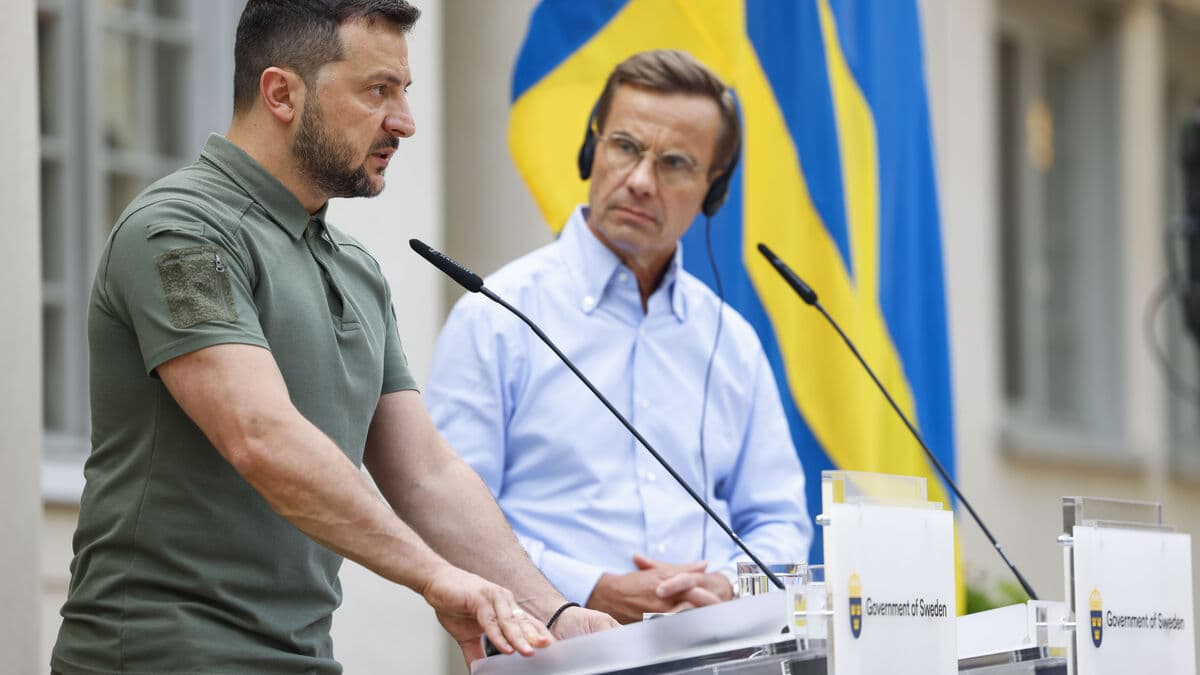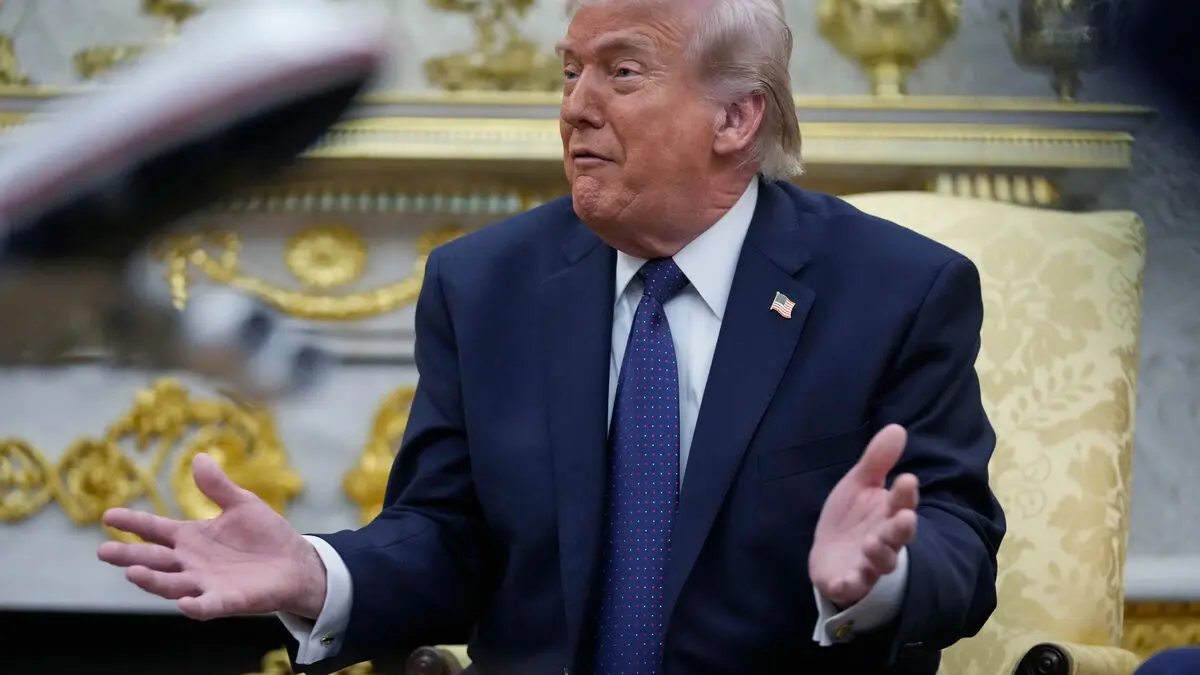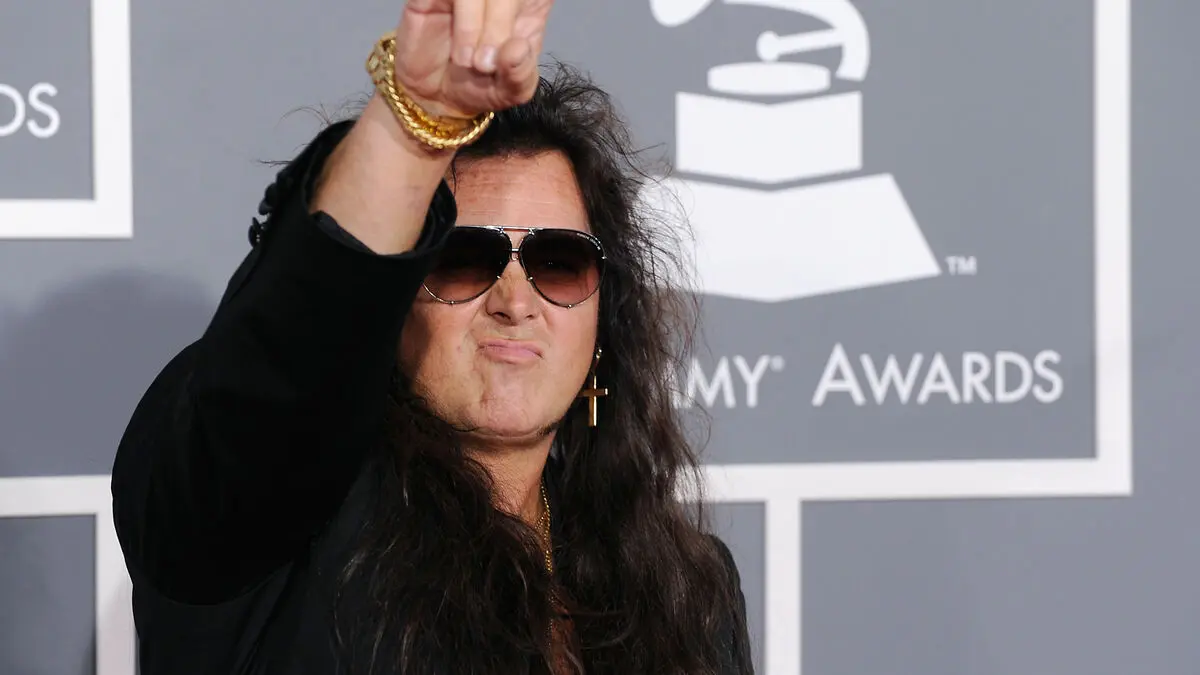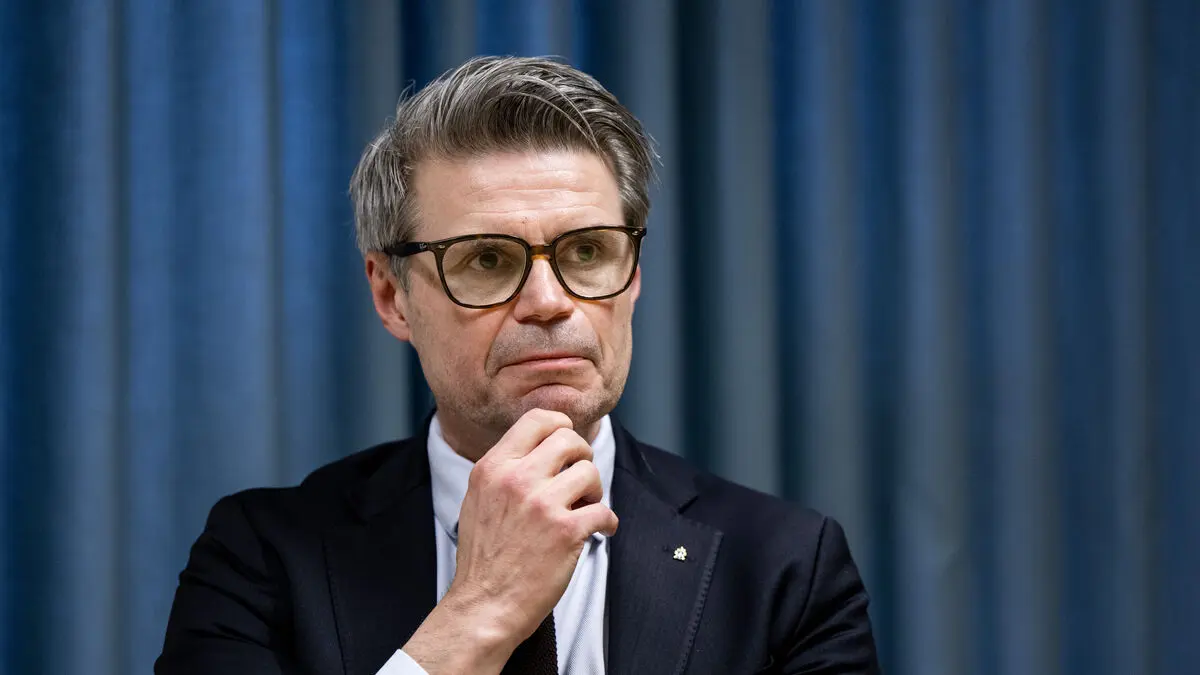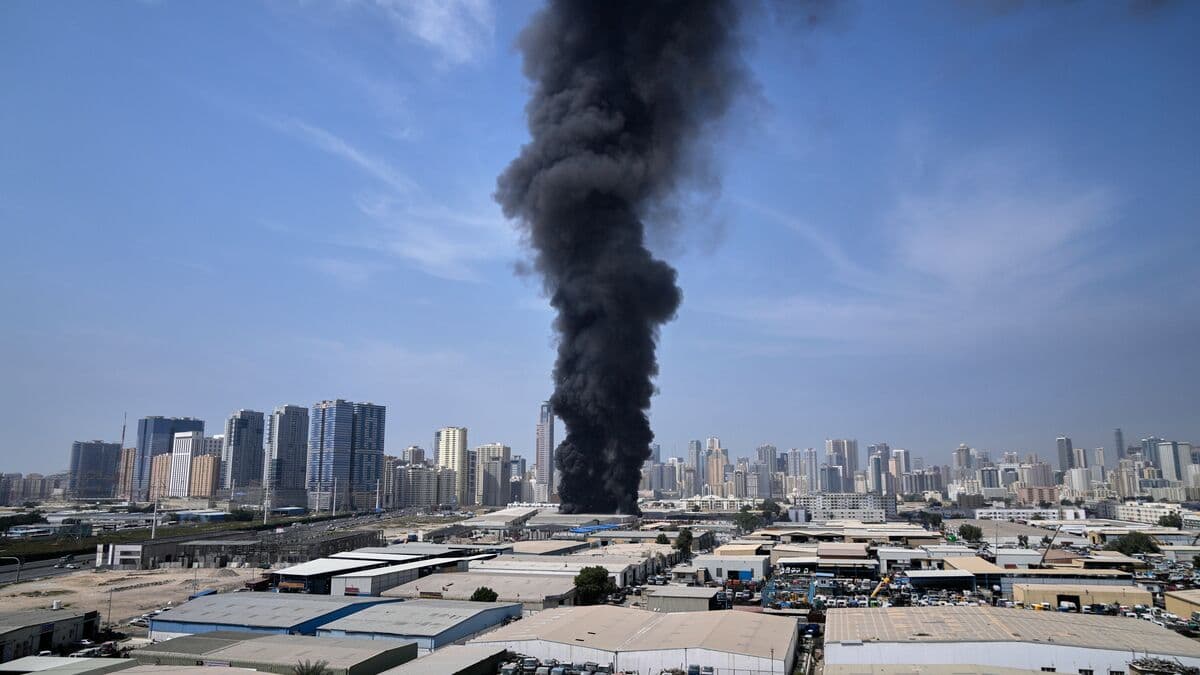We are now moving forward with the strategy that a value corresponding to the Russian assets can begin to be used, says Prime Minister Ulf Kristersson (The Moderate Party) at a meeting in the Riksdag's EU Committee ahead of Thursday's summit in Brussels.
In brief, it is about the equivalent of 1,500 billion Swedish kronor in frozen Russian state assets that are intended to be used as security for loans to Ukraine.
Large amounts
The money is now in a financial institution in Belgium. In recent months, reservations about the model have been heard from several EU countries, including Belgium, which has expressed concerns about future claims for damages from Russia and that the measure could affect the euro negatively.
Germany, however, has backed the strategy, which Chancellor Friedrich Merz believes can "secure Ukraine's military resistance for several years to come".
It's about really large amounts, notes Kristersson in the EU Committee.
And until Russia pays war damages, Ukraine does not have to pay back.
A formal proposal is expected to be presented after the summit, which Ukrainian President Volodymyr Zelenskyj is also expected to attend.
To increase pressure on Moscow, EU leaders also hope for agreement behind a 19th sanctions package against Russia. Sweden's line is that more ships in the Russian so-called shadow fleet, which is used to circumvent sanctions, should be listed, and that an import ban on Russian gas should be introduced from 2027.
Sixth largest
The measures come in light of the fact that the US has significantly reduced its support for Ukraine. Kristersson emphasizes that Europe must take greater responsibility, but claims that Sweden is doing its part: Since Russia's full-scale invasion war began in February 2022, Sweden has contributed more than 100 billion kronor to Ukraine's defense.
Sweden is the sixth largest donor of military support in absolute terms, not per capita or the size of the economy, he says in the EU Committee.
It reflects that we mean what we say. They (Ukraine) are not just defending their country, but all of Europe.

